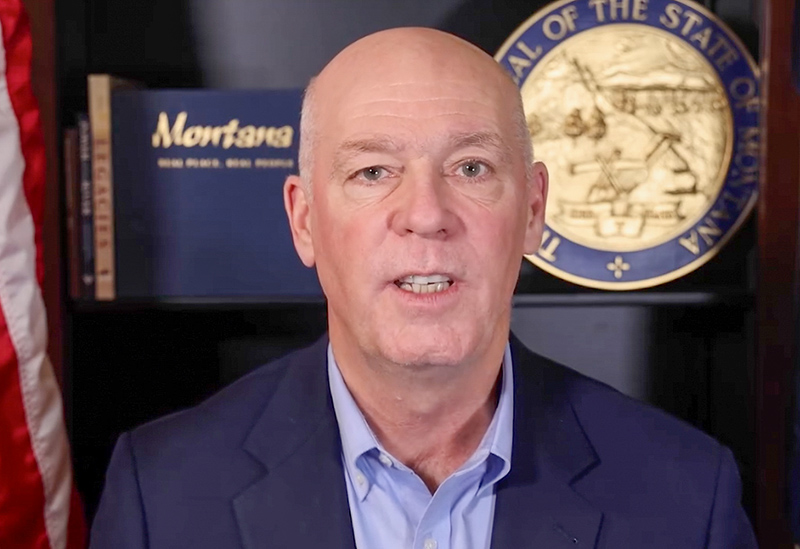Lambda Legal seeks to add two more transgender plaintiffs to its health care lawsuit against West Virginia
A Medicaid recipient and a state employee say they've been denied coverage for gender-affirming care due to insurance exclusions.

The LGBTQ legal advocacy firm Lambda Legal filed a motion last week asking the court to add two additional transgender plaintiffs to its lawsuit challenging the state of West Virginia’s blanket exclusion on insurance coverage for gender-affirming care in both its Medicaid program and its state employee health plan.
The original class-action lawsuit, filed in U.S. District Court for the Southern District of West Virginia last November, claims that insurance exclusions in both the Medicaid program and state employee health insurance plan violate the plaintiffs’ right to equal protection under the law, discriminating on the basis of both sex and transgender status. It also claims that the exclusions violate nondiscrimination protections contained in the Affordable Care Act, and requirements in West Virginia’s Medicaid Act requiring that all Medicaid recipients must receive an equal degree of coverage compared to other recipients.
Lambda Legal is now seeking to add additional plaintiffs to its lawsuit: Shauntae Anderson, a 45-year-old Black transgender woman who works as a wrapper operator in a warehouse and is a Medicaid recipient; and Leanne James a 43-year-old transgender woman who works for the state, both of whom have been denied coverage for gender-affirming treatments for gender dysphoria.
“My life as a Black transgender woman has not been easy. I suffered years of agony and desperation without appropriate care and treatment for my gender dysphoria,” Anderson said in a statement. “Like other Medicaid participants, I rely on Medicaid for health care coverage and it has been heartbreaking to hear that just because I am transgender, I can’t access coverage for care that is medically necessary. It is not only inhumane but also unjust to be singled out this way.”
“It is deeply upsetting that I am deprived of coverage for critical and urgent health care simply because I am transgender,” added James. “As a public employee and [state employee insurance plan] member, being denied coverage for medically necessary care that cisgender state employees have full access to is an insult to my dignity. The exclusion in the state employee health plans is a reminder to myself and other transgender state employees that we are being denied equal compensation for equal work.”
The three original plaintiffs in the case are: Christopher Fain, a 44-year-old college student and transgender clothing store employee on Medicaid; Brian McNemar, a 38-year-old cisgender accountant at a state hospital who is on the employee health care plan; and McNemar’s transgender spouse, 33-year-old Zachary Martell.
Due to the denial of insurance coverage for hormones and even regular office visits with a primary health care provider, Martell and McNemar have been forced to either pay out-of-pocket expenses in full or forego gender-affirming care. As such, they asked the court to block the state from refusing to cover medically necessary transition-related procedures or treatments.
Approximately 564,000 West Virginians receive insurance coverage through the state’s Medicaid program, with around 15,000 other West Virginians receiving benefits through the state employee insurance plan.
“The state of West Virginia continues to deny medically necessary gender-confirming health care to transgender West Virginians — via explicit and targeted exclusions,” Avatara Smith-Carrington, a staff attorney at Lambda Legal and a lead attorney in the lawsuit, said in a statement.
“West Virginia’s ban on gender-confirming care is unconstitutional and discriminatory; it causes physical, emotional, and financial distress; and it denies transgender West Virginians basic dignity, equality, and respect,” Smith-Carrington added. “Ms. Anderson and Ms. James are just two of many transgender people in West Virginia who are being denied basic health care just because of who they are.”
Lambda Legal has previously filed similar challenges in other states with blanket exclusions of coverage for gender-affirming care in state employee health plans. In March 2020, a federal judge found that an Alaska state librarian had been discriminated against when she was denied coverage for her transition-related care.
That same month, a federal judge in North Carolina refused to dismiss a lawsuit filed on behalf of state employees and their dependents who were denied coverage for gender-affirming treatments.
Earlier this month, the 4th U.S. Circuit Court of Appeals, which includes West Virginia, ruled that a state — in that particular case, North Carolina — could be sued for denying coverage to transgender policy holders and their dependents because the state health plan is a recipient of federal funds.
See also:
Fired cheer coach files lawsuit against California school district for anti-gay discrimination
Thousands of trans youth contact suicide hotline while Texas GOP pushes anti-trans bills
Support Metro Weekly’s Journalism
These are challenging times for news organizations. And yet it’s crucial we stay active and provide vital resources and information to both our local readers and the world. So won’t you please take a moment and consider supporting Metro Weekly with a membership? For as little as $5 a month, you can help ensure Metro Weekly magazine and MetroWeekly.com remain free, viable resources as we provide the best, most diverse, culturally-resonant LGBTQ coverage in both the D.C. region and around the world. Memberships come with exclusive perks and discounts, your own personal digital delivery of each week’s magazine (and an archive), access to our Member's Lounge when it launches this fall, and exclusive members-only items like Metro Weekly Membership Mugs and Tote Bags! Check out all our membership levels here and please join us today!

























You must be logged in to post a comment.